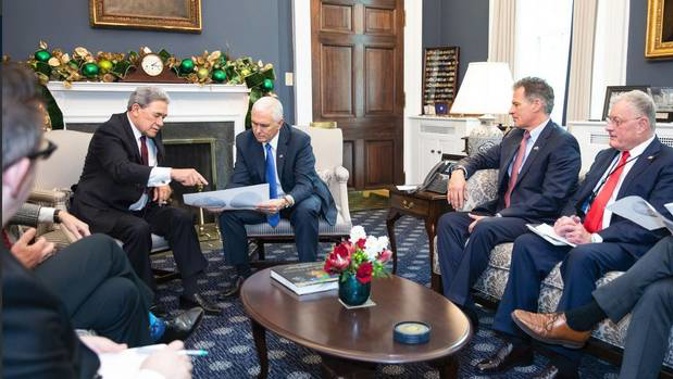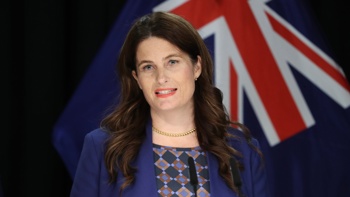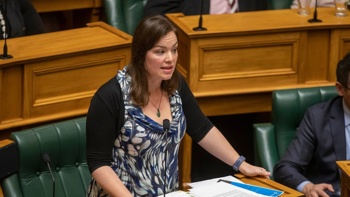
New Zealand and the US have agreed to pool resources in a bid to provide "desperately needed" infrastructure to help with economic development in the Pacific.
This comes just days after Foreign Minister Winston Peters appealed to the US to do more in the Pacific and to increase its spending in the region.
Peters has been in Washington for the last few days meeting with US Vice-President Mike Pence and Secretary of State Michael Pompeo.
Speaking to the Herald from Washington, Peters said the conversation was about "matters of mutual concern to both countries and to the neighbourhood of our countries".
On the meeting's agenda was the "geopolitical situation in our part of the world" and how the US and New Zealand could work together with the US to advance the Pacific's interest.
One way that both countries would be doing that would be by pooling resources to ensure the funding for the region went a lot further, Peters said.
This would come in the form of infrastructure investments which were "desperately needed for the advancement and the development of the Pacific economy", Peters said.
"Those were the sorts of things we were saying needed to be talked about and need action as soon as we can assemble the resources to do so."
On Saturday, Peters "unashamedly" called on the US to engage more with the Pacific and to provide more aid to the region.
"We are saying today to the United States that we welcome your involvement but ask you to join us in doing more because nations with common interests and common causes can achieve more together than any of us can manage on our own," he said at a speech in Georgetown University.
In the same speech, he highlighted New Zealand's concerns in the Pacific, including what he called "asymmetries at play in the region".
Peters said this comes at a time when larger players are renewing their interest in the Pacific, with an attendant element of "strategic competition".
"The speed and intensity of those interests at play are of great concern to us. Our eyes are wide open to this trajectory and we know that yours are too."
Speaking to the Herald, he would not specify what the "asymmetries at play" were, or who the "large players" were.
However, he did say: "Without putting a name on the country, or countries, [it's] obvious anyone who has watched Pacific Affairs that things have changed, and changed dramatically."
Asked specifically if the larger players was China, Peters said he did not itemise who they were – "I think it can be taken as a given that there are always, in any circumstances like this, shifting and moving influences and I was just making a point that was obvious."
Peters would not say if he, Pence and Pompeo talked about China's growing influence in the Pacific during their meeting.
"We discussed a wide range of geopolitical circumstances – that's all I'm going to say."
Meanwhile, Peters said he met with US President Donald Trump's Kiwi expat deputy chief of staff Chris Liddell last night.
Asked what he talked about with Liddell, Peters said it was a "private discussion of value to the New Zealand Government and of value to my job as Foreign Affairs Minister."
In a statement, Pence said he and Peters had agreed to the importance of the United States and New Zealand working closely together to achieve a breakthrough on improving bilateral trade.
"The two discussed the United States' Indo-Pacific Transparency Initiative and New Zealand's Pacific Reset, noting the importance of good governance, the need for broad economic development in the Pacific that includes the private sector, and strong and inclusive government institutions, based on principles of openness and transparency," Pence said.
Take your Radio, Podcasts and Music with you









